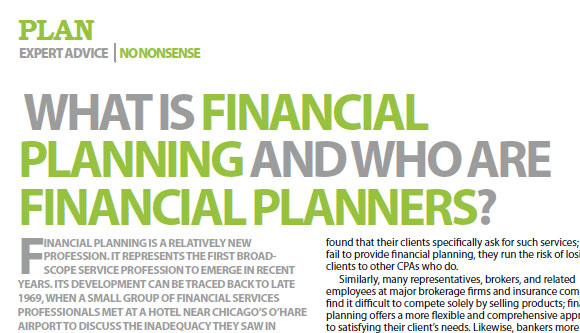Simplify Your Financial Life
EASY MONEY> 5 TIPS
Simplify Your Financial Life
Five credit cards, three savings accounts, four time deposits, two checking accounts, three mutual funds, six insurance policies – how can you possible keep track of them all? Unfortunately, many of us fall into the trap of “the more, the messier.” How do you keep your financial life simple, easy, and manageable?
1. Consolidate your deposit accounts. Do you really need all those bank accounts? You’ll end up with a truck load of bank statements, passbooks, ATM cards, and certificates of deposits. Not only can it be confusing, you’re setting yourself up for overdraft fees, dormancy charges, below-minimum penalties, and lower interest income. Keep your payroll account (or primary savings deposit account) and link it to a checking account for bills payment. Stay with one bank for transactional purposes (paying bills) and with another, if necessary, for investing purposes (higher-rate time deposits).
2. Stick to two credit cards. It’s too easy to say yes to pre-approved credit cards. Well, it’s time to learn to say no. More cards can lead to late fees, high charges on minimum payments, and the road to debt perdition. Instead, keep one card (with a relatively small credit limit, so it wouldn’t hurt as much if it gets stolen) in your wallet for everyday purchases, and store another (with a higher limit) for international travel, high-ticket purchases, and financial emergencies.
3. Avoid complex financial products. Complexity is what caused the recent global financial crisis, and if you like to complicate your financial life, you could also end up with your own little crisis. So if you need life insurance, stick to term insurance. If you want to have a diversified investment portfolio, go for one balanced fund or one stock fund and one bond fund.
4. Set up a bills calendar. Too many bills, too little time, right? If you want to avoid the misery of paying unnecessary fees and charges, you have to be on top of your bills payment schedule. For that, you need to set up a bills calendar, whether it’s a paper calendar on your desk or an electronic one in your computer or mobile phone. Being alerted to due dates is crucial. An alternative is to pay only once or twice a month on a fixed day, say every 15th and 30th, regardless of the actual due dates, so you don’t even have to try remembering them anymore.
5. Automate it. If you can make your financial transactions automatic, the fewer mistakes you make. If you can enroll all your utility bills and insurance premiums to your credit card, do it. If your mutual fund or UITF can automatically debit your savings account on a regular basis, set it up. If you can have your savings deposit set aside a fixed amount every month to a higher-rate account, do it. If your bank lets you automatically transfer funds to your checking account when necessary, let them.


